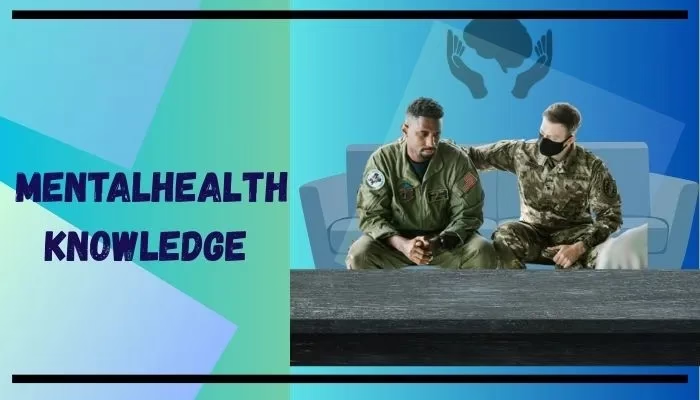
Mental Health and Veterans
For many military employees, the return to civilian lifestyles marks the starting point of a new and frequently difficult journey. Mental health and veterans is a topic that merits pressing attention, as countless former service m contributors battle with psychological injury long after their physical ones have healed. Addressing emotional trauma, stress, and post-service identity calamity is necessary for healing and improvement. With proper support, education, and care, veterans can overcome these hidden wars and rebuild satisfying lives.
Mental Health and Veterans: Understanding Post-Service Struggles
After a military carrier, many veterans front on to emotional and psychological problems. The adjustment from a good designed environment to regular civilian lifestyles can be fantastic. Mental health and veterans problems frequently include anxiety, PTSD, distress, and addiction, which frequently go untreated.
- The stigma of adjacent emotional struggles still stops many veterans from seeking help.
- Service-related trauma may stay silent,but keep to affect sleep, relationships, connections and employment.
- Support systems, including therapy and colleagues, are necessary for emotional healing.
- Veterans’ mental well-being interacts with families and communities, specifying the importance of generalized support.
The Link Between Deployment and Psychological Disorders
Repeated arrangements and showing up to battle increase the risk of developing mental illnesses. Mental health and veterans remain interconnected because of the grinding realities of wars, separation, isolation and continuance stress.
.
- PTSD is one of the most common problems veterans face post-mission.
- Depression regularly follows when veterans feel disconnected from civilian society.
- Survivors’ guilt and unresolved sadness may keep going for years.
- Co-occurring problems like addiction or eating problems can further mess up treatment.
Barriers to Seeking Help in Mental Health and Veterans Care
In spite of growing realization, many veterans are hesitant to chase care. Mental health and veterans remain a complicated problem because of inner and external limitations that avoid entry and recognition of psychological help.
- Fear of acting weak or being judged deters many from talking loud.
- Absence of trust in the healthcare system put up to under-declaring.
- Long periods of waiting and bureaucratic hurdles disappoint treatment.
- Veterans in rural or disadvantaged areas may face intense differences.
VA Support Systems and Mental Health Services for Veterans
Thankfully, there are firms and systems in place to help veterans. Mental fitness and veterans steering has increased in recent years, with the Department of Veterans Affairs performing an important role.
- The VA provides consolation, medicine, drug, and body treatment alternatives.
- Online structures and telehealth services improve convenience.
- Point-point programs create safe places for shared reviews.
- Emergency helplines are to be had available 24 hours for serious emotional help.
The Role of Family and Social Reintegration in Healing
Family members are necessary combine in veterans’ healing journeys. Mental health and veterans care frequently starts at home, where understanding and patience perform an important part in improvement.
- Connection breakdowns can slow down emotional healing.
- Every one may need education on trauma and changes in behavior.
- Encouraging veterans to interact in community life helps them feel stable.
- Keep up groups for families promote empathy and flexibility..
The Role of Family in Mental Health and Veterans Care
Family members are necessary to merge in veterans’ healing journeys. Mental fitness and veterans care frequently begins at home, where feelings and consistent help make a good impact. However, the emotional stress on loved ones can also be intense, and need mutual understanding. Therefore, family interference performs an active part in easing the fixing up process..
- Communication training helps both parties express needs and emotions clearly.
- Support groups for families create secure spaces for shared gaining knowledge.
- Teaching loved ones about PTSD and trauma creates empathy.
- Regular circle of relatives therapy meetings promote combined healing.
Holistic Approaches to Veterans’ Mental Wellness
Modern care increasingly embraces different methods alongside common therapy. Mental health and veterans wellness can be strong through a mix of physical, emotional, and imaginative actions.
- Mindcare and meditation decrease anxiety and improve attention.
- Capability, craft and music treatment provide wayout for showing trauma.
- Physical activities like sports, trekking, yoga, or martial arts provide healing send off.
- Animal-assisted therapy has shown helpful for emotional acts.
Addressing Suicide Risks Among Veterans
Suicide obstacles remains one of the most pressing concerns in this field. Mental health and veterans programs must prioritize early interference, especially for at-risk people.
- Veterans account for a huge percentage of younger suicides in the U.S. and many countries.
- Untreated trauma, separation, and absence of help increase possibilities.
- Encouraging open talk about suicidal thoughts and feelings is life-saving.
- VA suicide prevention controller are available general.
Peer Support and Community Engagement
Veterans helping veterans is one of the best healing tools. Mental health and veterans projects that emphasize shared experiences have a leaning to build stronger, lasting progress.
- Peer mentors help normalize emotional challenges.
- Group activities foster belonging and structure.
- Step forward promotes self- confidence and a feeling of purpose.
- Community programs provide accountability and hope.
Employment and Identity Rebuilding Post-Service
Returning to the workforce can be difficult after military service. Mental health and veterans programs must address career transitions and loss of identity tied to previous roles.
- Job training programs help veterans acquire civilian skills.
- Career counseling provides direction and confidence.
- Peer groups offer networking and resume support.
- Reinventing purpose is key to restoring emotional balance.
Technology and the Future of Veteran Mental Health Care
Digital solutions continue to expand access to care. Mental health and veterans resources now include mobile applications, virtual treatment, and AI-driven wellness systems.
- Digital packages provide daily mood swings and self-care tips.
- AI chat tools give immediate emotional support when no one is available.
- Online forums connect veterans globally.
- Smart devices help monitor sleep and stress levels in real time.
Conclusion: Rebuilding Lives Through Awareness and Care
Addressing mental health and veterans concerns is not just about therapy—it’s about understanding, reintegration, and understanding. Through education, community, network, and innovation, we can ensure that no expert walks alone in their healing journey. As we continue to help for improved care and decreased stigma, we create a future where emotional well-being is prioritized as much as physical recovery.
